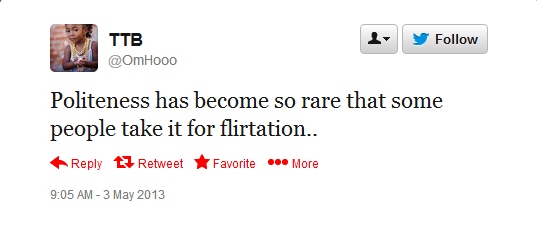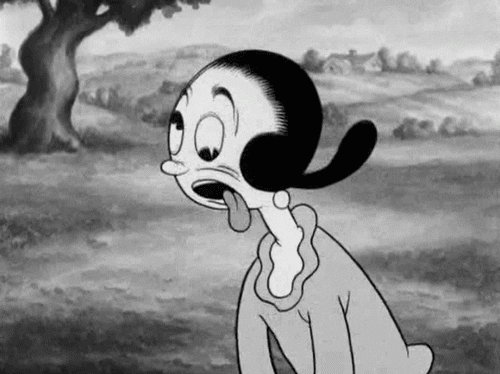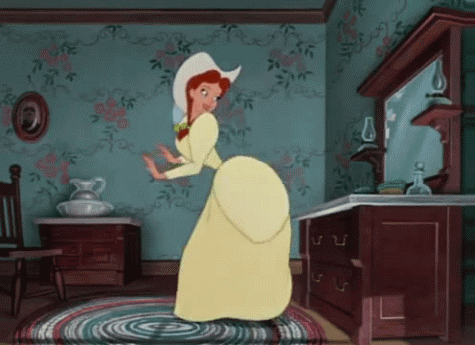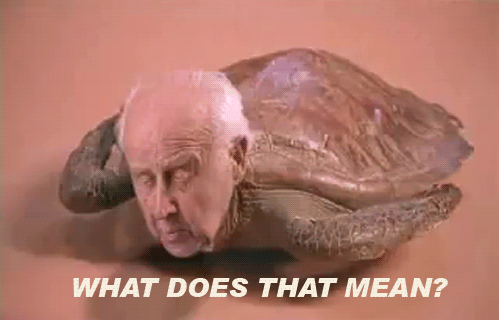![]()
Many people like to ask me questions about why I support former president Pervez Musharraf. As part of the questions, they like to pepper in the misinformation that the Pakistani media has presented to the public for consumption.
During one such discussion on Facebook, I was asked the following:
The question cum comment
“According to you, Khalid Muhammad, what were the positives and negatives of Musharraf’s tenure? People consider him to be the reason for drones, missing people (Aafia Siddiqui), Bugti murder case, Lal Masjid, all that happened to Pakistan after 9/11 (and) the current shortfall of electricity and gas. Suicide bombing took a toll during his rule, then May 12, 2007 (incident took place) in Karachi, (he broke) the constitution twice and many more. What all out of these are true and what all are not? Because people only hear what they are made to hear and the actual facts and information is many times different from the general perception.”
My response
Before I discuss the good of Musharraf’s tenure, let me answer the things that you have posted.
Drones
Yes, this program was started during the Musharraf government but it was overseen by the Pakistan Army. No drone could be launched in Pakistani airspace without the express approval of the Pakistan Army. The drones’ flight patterns were also contained in boxes set by the army, so that other things could not be spied upon. I have received this information
through research by a US-based organisation that has mapped out the total drone strikes and deaths in Pakistan since the start of the program.
Missing people
This too is a media manufactured issue. The
missing people that are being reported from Musharraf’s time fall into two categories: foreign fighters and Pakistanis caught in Afghanistan.
The foreign fighters captured by the Pakistan Army were first offered to their countries of origin, namely
Uzbekistan, Tajikistan, Saudi Arabia, United Arab Emirates (UAE) and the likes. If the country of origin refused to accept them then they were handed over to the US because they were terrorists in our country.
The Pakistanis who were caught in Afghanistan were taken straight to
Bagram and then to the
United States Naval Station Guantanamo Bay (Gitmo). No Pakistani was taken from inside the country to Gitmo. When it comes to Aafia Siddiqui, I leave it to you to decide based on the information in
this article. Even the judge in the US who heard her case said that if you are innocent, provide a defence so that we can free you – she did not.
When we talk about the Baloch, we can’t have this discussion without talking about the Balochistan Liberation Army that is fighting to pull Balochistan from Pakistan.
The Baloch are right in demanding that they be given more of their fair share when it comes to the resources that are used by the state. But demanding secession from Pakistan is not the answer nor is taking up arms against the state to achieve that end. Many of the
missing Baloch people could be, and probably are, a part of this movement and not actually missing, as some would like to claim.
Now, I am not saying that the intelligence services have not captured some of those involved in these activities, which I am sure they have, but to wholly claim that all of the missing persons from Balochistan are in state’s custody is not believable. And to blame Musharraf for all these disappearances is factually, morally and ethically wrong.
Why isn’t anyone talking about Nawaz Sharif and his version of the Patriot Act for Pakistan, the
Protection of Pakistan bill?
As per the guidelines of this bill, anyone who is
involved in any anti-state behaviour, which is not clearly defined, can be arrested and detained indefinitely without any access to courts, family or rights. Are we suggesting that Pakistan has its own Gitmo (Guantanamo) for those who the government of the day feels are not within the norms of our society as deemed by them? Are we going to witness blanket arrests of those who protest for lower prices, a better economy, more effective governance and policing or anything else that affects the common man?
Not knowing the guidelines of what is considered ‘anti-state’ makes this bill a tool for imprisoning those who the state disagrees with. Interestingly, the Protection of Pakistan bill is not being implemented against the TTP, who are claiming to be involved and responsible for anti-state activities. They are being brought to the negotiating table to redress their grievances.
So is what is the point of a bill like this, other than being another attempt to placate the public into believing that the state is working for their safety? Yet, no one is raising their voice, no court is questioning the validity or the constitutionality of this bill. Is it true, that in a democratic setup, Pakistanis are willing to allow for much more ‘gamesmanship’ than they would under a military one? It seems so doesn’t it?
Lal Masjid
Musharraf was right in what he did. If I were prime minister back then, I would have taken action sooner. The Ghazi brothers regularly made
speeches supporting al Qaeda, illegally took control of a library for themselves, and kidnapped people and burned shops because they chose to. When you behave like a bully, you can’t complain if a bigger bully comes along and kicks your behind.
Please remember that the whole episode built for six months before the government took action. They tried to reason with them. They tried to
negotiate with them. They even asked anyone who wanted to leave, to leave without charge or arrest. The Ghazi brothers wanted a fight and fired the first shot that killed a commando on the street.
And while we are talking about Lal Masjid, why were there so many weapons in the
taliba’s (students) hands?
If it is a mosque, there should be books, not AK-47s, rocket launchers and other weapons.
This was not a place of worship – it was a school of war.
The suicide bombings
During Musharraf’s government, the army was fighting terrorists, killing them and their members. Terrorists only knew one way to retaliate for the losses they were suffering – by killing innocent civilians via suicide bombs. Now let’s be clear; suicide bombing is a coward’s way to fight and un-Islamic to the core.
Suicide bombings were taught to the
TTP by al Qaeda trainers that had seen the success in Iraq. They were formally trained in Afghanistan on how to make suicide vests, how to brainwash people into believing that this was their path to
jannat (heaven) and kept them locked away from everyone to make sure no one convinced them otherwise.
There was a suicide training centre on my family’s land in Swat while the TTP had control of the area. I visited it after they were forced out of Swat. I can’t explain the sadness I felt when I listened to the stories and what my eyes saw there.
Violating the constitution
This is the one charge that many have held up against Musharraf but I would remind these people that the whole nation – including the Pakistan Peoples Party –
celebrated when he took over the country. Not one lawyer stepped on the street or into the court to challenge the act of October 12, 1999.
Iftikhar Chaudhry affirmed all these actions, after taking the
Provisional Constitutional Order oath, when he was chief justice. The discussion, however, is not about October 12, 1999 but on November 3, 2007, where Iftikhar Chaudhry’s ego was damaged because he was
questioned about the manner in which he ran the Supreme Court.
The Election Commission of Pakistan (ECP) approved General Musharraf’s candidacy for president of Pakistan, which was immediately challenged by retired Supreme Court Justice Wajihuddin Ahmed on the grounds of whether a member of the military was constitutionally permitted to hold the Presidential Office. It should be noted that Musharraf was already president when this challenge was submitted.
On the September 28, the Supreme Court declared that
Musharraf could contest the elections but the ECP could not announce the results until a final decision was announced by the Supreme Court. Musharraf won 98% of the vote in the Senate, Parliament and the four provincial assemblies.
This is where the story turns, like so many in Pakistan do.
The Supreme Court decided to delay the announcement of its decision due to a personal engagement of one of the members of the bench, which was quickly changed citing instability in Pakistan.
Let’s be clear, the Constitution of Pakistan does allow the president to declare a
State of Emergency as per Article 232 if he is assured that a situation exists to warrant its imposition. So how is it a violation of the Constitution when the Constitution itself allows for it?
If we look at the text of the Emergency Proclamation and the on-ground conditions in the country at the time, there are three things cited as the reasons for the declaration – increase in attacks within the borders of Pakistan by extremists and terrorists, attacks against state institutions and law enforcement agencies and some members of the judiciary working against the fight against terrorism and extremism.
It would be unfair for me not to cite that the courts of Pakistan have not sentenced anyone involved in terrorist activities to prison sentences in the last decade, including Mumtaz Qadri, the man who admitted to assassinating Salmaan Taseer. Instead, most were freed, including those involved in Lal Masjid, citing incomplete evidence only to return to their terror groups and resume attacks on Pakistani citizens and state institutions.
Do you honestly feel that the ‘state of emergency’, which lasted until December 15, was uncalled for or unjustified?
However, I think we should also talk about others who have violated the Constitution in the past. Zulfiqar Ali Bhutto, the PPP’s founder, was the
first civilian martial law administrator in the country’s history. He suspended the Constitution that he wrote and passed through the assemblies. He was never charged with treason.
Ziaul Haq, the General who Islamised Pakistan, also violated the Constitution when he overthrew Bhutto. He added amendments to the Constitution that are a violation of human rights and those amendments have never been removed. He too was never charged with treason.
Nawaz Sharif, current prime minister of Pakistan, stormed the Supreme Court and
removed Chief Justice Sajjad Ali Shah, attempted to
pass an amendment to the Constitution that would make him ruler of Pakistan and supported the Zia regime as finance minister Punjab and chief minister Punjab. He was never charged with treason.
No member of the current political government fulfils the
requirements of Article 62 and 63 of the Constitution, yet they are sitting in our assemblies, as elected members and ministers.
Hussain Haqqani, Pakistan’s former ambassador to the United States, was about to be charged with treason but he fled the country, claiming that he had received threats to his life.
When we talk about violating the Constitution, it seems like it’s done every day in Pakistan, by those who are present in our assemblies, running political parties and practicing law. Yet, no one dares to demand that they be charged for violating the Constitution or disallowed from competing in elections.
Special court and arrest warrant
Before we can even accept the
arrest warrant issued by the special court, we need to validate their powers under the laws of Pakistan. Based wholly on the court documents, President Musharraf is being referred to as General Musharraf, which creates a conflict for the government.
Certainly within the bounds of the Constitution of Pakistan, the government of the day has the right to prosecute a civilian for violating the Constitution, but when it comes to a uniformed officer, it falls to the Army Act. The Army Act states that any case involving a member of the armed forces, and their collaborators, will be heard in a military tribunal, unless the Chief of Army Staff gives written consent to forego this right of the armed forces.
Has Sharif or had his predecessor Kayani given this consent?
If they have not, then the special court has no power or right to hear this case. Thus, ending their ability to issue an arrest warrant for the former president.
Additionally, with a Supreme Court full of those who were affected by the November 3rd action, is there any doubt that Musharraf will get a fair trial?
They refuse to grant him the same privilege that has been afforded to Nawaz Sharif, who was able to have a hijacking verdict overturned after nine years by the same court that issued the verdict without any new evidence, but Musharraf’s petition was time-barred after four.
Lady Justice is not blind in Pakistan and the scales are not even.
But let’s assume that the special court does have the power to issue the arrest warrant for the former president. First, even if the accused does not appear in court, the bench cannot immediately declare him a proclaimed offender and absorb his assets.
The proclaimed offender distinction is reserved for those who are evading arrest and in hiding, which Musharraf is not. His attorneys are at every court hearing and he is in the hospital.
Now, I won’t get into the duplicitous game of allowing some to
testify via a video link due to death threats, perceived or otherwise, in treason cases from outside the reach of Pakistani law enforcement. Nor will we discuss the
corruption cases of the 90s when all the accused leaders had fled the country to avoid prosecution and were not stripped of their assets in Pakistan. Nor will we talk about the multitude of excuses made to the courts on why people could not appear before the bench, ranging from medical to personal problems.
No, we won’t talk about those things because Pakistan is dead set on charging Musharraf thinking that it will keep the Army in the barracks forever, if they can just get one General convicted. Forget about all the collaborators, politicians and others, who stood shoulder to shoulder with the “dictator” in prolonging his rule. They are inconsequential in the scope of things - it’s the Army that needs to be taught a lesson, not those who supported, benefited and are still in government today.
It was Confucius who said “before you embark on a journey of revenge, dig two graves,” leading me to wonder who will occupy the second grave on this journey of revenge - the government, the judiciary or the State of Pakistan.
So why are we charging
Musharraf with violating the Constitution?
This is because it suits the political feudals to hold him responsible for the failures of the political governments. Rather than holding
themselves responsible for their own failure to deliver, they are targeting Musharraf.
Prior to the May 2013 elections, Shahbaz Sharif had promised to
end load-shedding in Pakistan within months of the Pakistan Muslim League-Nawaz (PML-N) taking power. What did they do once they did get elected and formed a government?
Absolutely nothing!
Imran Khan
promised to rid Pakistan of corruption in 90 days, but it’s been six months since he has been in power in the troubled Khyber Pakhtunkhwa (K-P) and that promise has still not been executed on any level. It fits the popular political mantra of Pakistan, that ‘it’s not our fault, the previous government emptied the coffers,’ while these politicians ask for more loans from international organisations to empty into their own private, offshore bank accounts.
If you are willing to charge one man in uniform for treason, then why are the others exempted from the same charge, with more heinous crimes?
This post originally appeared here.

 Screen grab from Spotflux Facebook page (facebook.com/spotflux)[/caption]
Yesterday, after conducting the said investigation, the company posted the following message on its official Facebook page:
[caption id="" align="alignnone" width="587"]
Screen grab from Spotflux Facebook page (facebook.com/spotflux)[/caption]
Yesterday, after conducting the said investigation, the company posted the following message on its official Facebook page:
[caption id="" align="alignnone" width="587"] Screen grab from Spotflux Facebook page (facebook.com/spotflux)[/caption]
Thus, one of the channels of free access to the internet has been shut down at the hands of a government determined to gradually stifle the freedom of the Pakistani web-surfer. And with this comes the fear that the tightening vice of censorship will only become tighter.
I wonder how long it will be before access to Facebook, Twitter and various other forums used by Pakistani citizens is permanently prohibited in the name of our ‘protection’.
As Alan Isaacman once stated,
“If we start throwing up walls against what some of us think is obscene...we may wake up one morning and realise that walls have been thrown upon places we never expected...and we can’t see anything or do anything. And that’s not freedom. That is not freedom. So, be careful.”
The end to this censorship is now a matter of utmost urgency; else it will only be a matter of time before Pakistan becomes Oceania with the government playing the role of Big Brother.
Screen grab from Spotflux Facebook page (facebook.com/spotflux)[/caption]
Thus, one of the channels of free access to the internet has been shut down at the hands of a government determined to gradually stifle the freedom of the Pakistani web-surfer. And with this comes the fear that the tightening vice of censorship will only become tighter.
I wonder how long it will be before access to Facebook, Twitter and various other forums used by Pakistani citizens is permanently prohibited in the name of our ‘protection’.
As Alan Isaacman once stated,
“If we start throwing up walls against what some of us think is obscene...we may wake up one morning and realise that walls have been thrown upon places we never expected...and we can’t see anything or do anything. And that’s not freedom. That is not freedom. So, be careful.”
The end to this censorship is now a matter of utmost urgency; else it will only be a matter of time before Pakistan becomes Oceania with the government playing the role of Big Brother.


 Mera Saaein was the story of a traditional feudal lord and politician with insatiable desires of women, power and wealth. Photo: Official Facebook page[/caption]
One entertainment channel even went to the extent of showing an apparently unmarried couple living under the same roof as husband and wife in Rishtay Kuchh Adhooray Se.
[embed width="620"]http://www.dailymotion.com/video/x14qov1_rishtey-kuch-adhore-se-hq-episode-05-sep-15-2013_shortfilms[/embed]
And then of course is the foreign content –
Mera Saaein was the story of a traditional feudal lord and politician with insatiable desires of women, power and wealth. Photo: Official Facebook page[/caption]
One entertainment channel even went to the extent of showing an apparently unmarried couple living under the same roof as husband and wife in Rishtay Kuchh Adhooray Se.
[embed width="620"]http://www.dailymotion.com/video/x14qov1_rishtey-kuch-adhore-se-hq-episode-05-sep-15-2013_shortfilms[/embed]
And then of course is the foreign content –  Turkish dramas have taken over our entertainment channels. Photo: File[/caption]
And yet,
Turkish dramas have taken over our entertainment channels. Photo: File[/caption]
And yet,  Mujhe Khuda Pe Yaqeen Hai was the story of how a girl tried to humiliate her fiance with false claims only to marry his US-return brother. Photo: Official Facebook page[/caption]
The media industry must realise the impact such things can have on our society. All those associated with this industry have a huge responsibility on their shoulders to mend their ways for a better society.
Since the Pandora’s Box is already open, it won’t be easy to fix the problem quickly.
But one of the steps that can be taken immediately by the media is to start having Parental Guidance (PG) ratings for all the shows being aired by our TV channels so that the viewers can at least know which category the program they intend to watch falls under.
Jim Morrison once said,
Mujhe Khuda Pe Yaqeen Hai was the story of how a girl tried to humiliate her fiance with false claims only to marry his US-return brother. Photo: Official Facebook page[/caption]
The media industry must realise the impact such things can have on our society. All those associated with this industry have a huge responsibility on their shoulders to mend their ways for a better society.
Since the Pandora’s Box is already open, it won’t be easy to fix the problem quickly.
But one of the steps that can be taken immediately by the media is to start having Parental Guidance (PG) ratings for all the shows being aired by our TV channels so that the viewers can at least know which category the program they intend to watch falls under.
Jim Morrison once said,


 Photo: File[/caption]
While making a pulao, I prefer to use tough cuts of mutton attached to the bone because the tough cuts add their own flavour and the bones make a rich stock. In addition, I get to eat the bone marrow while feasting on my pulao.
What more could one ask for?
Photo: File[/caption]
While making a pulao, I prefer to use tough cuts of mutton attached to the bone because the tough cuts add their own flavour and the bones make a rich stock. In addition, I get to eat the bone marrow while feasting on my pulao.
What more could one ask for?
 Akbari biryani
During Emperor Akbar’s rule, innovation in the Mughal kitchens was at an all-time high. Spices were being used in varying quantities and different ways by the cooks to create something new. This gave birth to the culinary heavyweight – the
Akbari biryani
During Emperor Akbar’s rule, innovation in the Mughal kitchens was at an all-time high. Spices were being used in varying quantities and different ways by the cooks to create something new. This gave birth to the culinary heavyweight – the  Photo: File[/caption]
Although the ingredients would vary due to seasonality and availability, the drink would consist of five ingredients in most cases.
The British picked up on the word ‘paanch’, which is Hindi or Urdu for the number five. Due to differences in pronunciation, this cocktail eventually came to be known as punch in the western world.
Photo: File[/caption]
Although the ingredients would vary due to seasonality and availability, the drink would consist of five ingredients in most cases.
The British picked up on the word ‘paanch’, which is Hindi or Urdu for the number five. Due to differences in pronunciation, this cocktail eventually came to be known as punch in the western world.
 Photo: File[/caption]
Rumour has it that Asafud Daulah ate so many shami kebabs that he was unable to mount his horse due to obesity.
So, now every time you are served shami kebabs, you can imagine a fat nawab falling off his horse!
Photo: File[/caption]
Rumour has it that Asafud Daulah ate so many shami kebabs that he was unable to mount his horse due to obesity.
So, now every time you are served shami kebabs, you can imagine a fat nawab falling off his horse!
 Photo: File[/caption]
I remember when I heard the word ‘curry’ for the first time, my mind automatically went to the dish known as karri.
Photo: File[/caption]
I remember when I heard the word ‘curry’ for the first time, my mind automatically went to the dish known as karri.  Photo: File[/caption]
Tantalising tea
Although the British were not able to change much of our eating habits they had one contribution that has become deeply rooted in our culture – tea.
It is hard to imagine
Photo: File[/caption]
Tantalising tea
Although the British were not able to change much of our eating habits they had one contribution that has become deeply rooted in our culture – tea.
It is hard to imagine  Photo: Reuters[/caption]
However, the subcontinent did not welcome tea with open arms initially.
It took the British years to make tea popular in the Indian subcontinent. Tea arrived in India with the arrival of the industrial world. A Tea Association was established which helped to market the product to the Indian population. The Tea Association would tour the country and teach people the correct method of making tea. However, tea vendors did not bother much about these methods and made their tea with plenty of milk and sugar. As tea became increasingly popular, people began to experiment with it and this gave birth to the different types of teas, especially masala chai (spiced tea).
Photo: Reuters[/caption]
However, the subcontinent did not welcome tea with open arms initially.
It took the British years to make tea popular in the Indian subcontinent. Tea arrived in India with the arrival of the industrial world. A Tea Association was established which helped to market the product to the Indian population. The Tea Association would tour the country and teach people the correct method of making tea. However, tea vendors did not bother much about these methods and made their tea with plenty of milk and sugar. As tea became increasingly popular, people began to experiment with it and this gave birth to the different types of teas, especially masala chai (spiced tea).






 Source: mrwgifs.com[/caption]
And these comments,
Source: mrwgifs.com[/caption]
And these comments,
 Source: mrwgifs.com[/caption]
Remember: He, pretty much, always has the upper-hand.
Source: mrwgifs.com[/caption]
Remember: He, pretty much, always has the upper-hand.
 Source: mrwgifs.com[/caption]
Source: mrwgifs.com[/caption]
 Source: mrwgifs.com[/caption]
Source: mrwgifs.com[/caption]
 Source: mrwgifs.com[/caption]
Source: mrwgifs.com[/caption]
 Source: Giphy[/caption]
Source: Giphy[/caption]
 Source: Giphy[/caption]
Source: Giphy[/caption]
 Source: mrwgifs.com[/caption]
Source: mrwgifs.com[/caption]
 Source: mrwgifs.com[/caption]
Source: mrwgifs.com[/caption]




 Photo: Publicity[/caption]
While pop music was around before Vital Signs came around, no band in our history has been as influential as them.
Vital Signs 1 was released a year after Ziaul Haq’s hawkish dictatorship came to a sudden end. This was a time when the socio-political dynamics in the country were bursting with freedom and euphoria not witnessed since 1977. It was fitting that art take the forefront and even more fitting that pop music be the flag bearer of artistic freedom. Vital Signs were not an unknown entity when the album came out. They had already left a permanent mark on our music history with the release of Dil Dil Pakistan in 1987 which to this day remains the biggest patriotic song in Pakistan and the release of the album in 1989 only cemented the band’s credentials.
[embed width="620"]http://www.dailymotion.com/video/xvw8ni_dil-dil-pakistan-vital-signsn_lifestyle?search_algo=2[/embed]
While Dil Dil Pakistan was the most popular song from the album, there were other songs on the track list which didn’t make it as big commercially, but still remain classics. ‘Yeh Shaam’ is the first such song. It was the longest song on the album, lasting over seven minutes, but its impact on our music industry lasted much longer. A ballad for the ages, the autumn brown harmony transcends time and transports you into a different world altogether. It remains without a shadow of a doubt, one of the best ballads our music industry has ever heard, and maybe even the very best.
[embed width="620"]http://www.dailymotion.com/video/x7qbn5_junaid-jamshed-yeh-shaam_music[/embed]
‘Musafir’ and ‘Tum Mil Gaye’ add to the ocean blue mood created by ‘Yeh Shaam’. Not as brilliant as ‘Yeh Shaam’ maybe, but both still remain top drawer ballads where Junaid Jamshed manages to sing about long lost times and an unfulfilling empty romance, mesmerising the listener with every passing chord. Rohail’s synthesisers add to the melancholic ambience around the songs.
[embed width="620"]http://www.dailymotion.com/video/xcz8fg_tum-milgaye-i-have-you-junaid-jamsh_music[/embed]
In ‘Gori’ you have one of the best feel good songs on the album. Salman Ahmad’s guitar playing is simple, but gets an A+ for sheer melodic value. Contrary to popular belief, this song was not celebrating women with fair complexions; it was a sarcastic take on women obsessed with it.
‘
Photo: Publicity[/caption]
While pop music was around before Vital Signs came around, no band in our history has been as influential as them.
Vital Signs 1 was released a year after Ziaul Haq’s hawkish dictatorship came to a sudden end. This was a time when the socio-political dynamics in the country were bursting with freedom and euphoria not witnessed since 1977. It was fitting that art take the forefront and even more fitting that pop music be the flag bearer of artistic freedom. Vital Signs were not an unknown entity when the album came out. They had already left a permanent mark on our music history with the release of Dil Dil Pakistan in 1987 which to this day remains the biggest patriotic song in Pakistan and the release of the album in 1989 only cemented the band’s credentials.
[embed width="620"]http://www.dailymotion.com/video/xvw8ni_dil-dil-pakistan-vital-signsn_lifestyle?search_algo=2[/embed]
While Dil Dil Pakistan was the most popular song from the album, there were other songs on the track list which didn’t make it as big commercially, but still remain classics. ‘Yeh Shaam’ is the first such song. It was the longest song on the album, lasting over seven minutes, but its impact on our music industry lasted much longer. A ballad for the ages, the autumn brown harmony transcends time and transports you into a different world altogether. It remains without a shadow of a doubt, one of the best ballads our music industry has ever heard, and maybe even the very best.
[embed width="620"]http://www.dailymotion.com/video/x7qbn5_junaid-jamshed-yeh-shaam_music[/embed]
‘Musafir’ and ‘Tum Mil Gaye’ add to the ocean blue mood created by ‘Yeh Shaam’. Not as brilliant as ‘Yeh Shaam’ maybe, but both still remain top drawer ballads where Junaid Jamshed manages to sing about long lost times and an unfulfilling empty romance, mesmerising the listener with every passing chord. Rohail’s synthesisers add to the melancholic ambience around the songs.
[embed width="620"]http://www.dailymotion.com/video/xcz8fg_tum-milgaye-i-have-you-junaid-jamsh_music[/embed]
In ‘Gori’ you have one of the best feel good songs on the album. Salman Ahmad’s guitar playing is simple, but gets an A+ for sheer melodic value. Contrary to popular belief, this song was not celebrating women with fair complexions; it was a sarcastic take on women obsessed with it.
‘ Photo: Publicity[/caption]
Vital Signs 1 is an album that should always be looked upon as the album that not only defined an era, but managed to set the rock solid commercial foundations of an entire industry.
Photo: Publicity[/caption]
Vital Signs 1 is an album that should always be looked upon as the album that not only defined an era, but managed to set the rock solid commercial foundations of an entire industry.
 Source: Reactiongifs[/caption]
I was relieved to learn that I was supposed to clean seeds and not four animal brains.
2) There is no uncle by the name of ‘lal baig’.
[caption id="" align="alignnone" width="500"]
Source: Reactiongifs[/caption]
I was relieved to learn that I was supposed to clean seeds and not four animal brains.
2) There is no uncle by the name of ‘lal baig’.
[caption id="" align="alignnone" width="500"] Source: Reactiongifs[/caption]
3) Don’t’ wear
Source: Reactiongifs[/caption]
3) Don’t’ wear  Source: Reactiongifs[/caption]
4) Chukandar (beets) and chuchandar (mole) are very different. You should have seen the look on my husband face when I said I put chuchandar in the curry.
[caption id="" align="alignnone" width="500"]
Source: Reactiongifs[/caption]
4) Chukandar (beets) and chuchandar (mole) are very different. You should have seen the look on my husband face when I said I put chuchandar in the curry.
[caption id="" align="alignnone" width="500"] Source: Reactiongifs[/caption]
5) The concept of not littering is practically non-existent. After carrying an empty can for 20 minutes in search of a trash can, I was forced to throw it where my flat disposes trash, in a pile behind the building.
[caption id="" align="alignnone" width="370"]
Source: Reactiongifs[/caption]
5) The concept of not littering is practically non-existent. After carrying an empty can for 20 minutes in search of a trash can, I was forced to throw it where my flat disposes trash, in a pile behind the building.
[caption id="" align="alignnone" width="370"] Source: Reactiongifs[/caption]
6) You will get many evil stares if you call a
Source: Reactiongifs[/caption]
6) You will get many evil stares if you call a  Source: Reactiongifs[/caption]
7) While we are on the topic horses, there is a difference between
Source: Reactiongifs[/caption]
7) While we are on the topic horses, there is a difference between  Source: Reactiongifs[/caption]
8) Green smoothies are unheard of – nobody makes spinach smoothies.
[caption id="" align="alignnone" width="499"]
Source: Reactiongifs[/caption]
8) Green smoothies are unheard of – nobody makes spinach smoothies.
[caption id="" align="alignnone" width="499"] Source: Reactiongifs[/caption]
9) Milk can be stored in the pantry, it never goes sour! Is it
Source: Reactiongifs[/caption]
9) Milk can be stored in the pantry, it never goes sour! Is it  Source: Reactiongifs[/caption]
10) No matter how loose ones clothes are or the
Source: Reactiongifs[/caption]
10) No matter how loose ones clothes are or the  Source: Reactiongifs[/caption]
11) Flagyl, the pill for stomach problems of all kinds, is my best friend.
[caption id="" align="alignnone" width="500"]
Source: Reactiongifs[/caption]
11) Flagyl, the pill for stomach problems of all kinds, is my best friend.
[caption id="" align="alignnone" width="500"] Source: Reactiongifs[/caption]
12) Bharay huweh
Source: Reactiongifs[/caption]
12) Bharay huweh  Source: Reactiongifs[/caption]
In the end, it’s still just tindeh.
Six months after, I flipped over my life; single-to-married,
Source: Reactiongifs[/caption]
In the end, it’s still just tindeh.
Six months after, I flipped over my life; single-to-married, 


 Photo: Total Siyapaa Official Facebook Page[/caption]
Mix the quirks of the characters, which are, to put it mildly and in printable language, cucking frazy, with a dangerous container of frozen soup and some near murders, and you have the recipe for a mammoth Siyapaa. Interestingly, things at the house take a massive turn for the worse when Aman is asked the all too familiar question of ‘what is your family background’.
This is when the parents unexpectedly learn that their Indian daughter, who was brought up as a Hindu, has chosen a Pakistani man, who follows a different religion. That’s when the already awkward dinner turns into an out and out farce.
Aman, the innocent, well-spoken boy from a good family, struggles to maintain his nerve as each character presents a new challenge. As he becomes more and more entrapped by the family’s eccentricities and a host of unexpected circumstances, Aman’s relationship with Asha comes under stress too.
[caption id="" align="alignnone" width="522"]
Photo: Total Siyapaa Official Facebook Page[/caption]
Mix the quirks of the characters, which are, to put it mildly and in printable language, cucking frazy, with a dangerous container of frozen soup and some near murders, and you have the recipe for a mammoth Siyapaa. Interestingly, things at the house take a massive turn for the worse when Aman is asked the all too familiar question of ‘what is your family background’.
This is when the parents unexpectedly learn that their Indian daughter, who was brought up as a Hindu, has chosen a Pakistani man, who follows a different religion. That’s when the already awkward dinner turns into an out and out farce.
Aman, the innocent, well-spoken boy from a good family, struggles to maintain his nerve as each character presents a new challenge. As he becomes more and more entrapped by the family’s eccentricities and a host of unexpected circumstances, Aman’s relationship with Asha comes under stress too.
[caption id="" align="alignnone" width="522"] Photo: Total Siyapaa Official Facebook Page[/caption]
His love for Asha makes him drop his accha bacha (good boy) standards and work to wriggle himself out of a welter of problems as he, against his will, finds himself in police stations, a flower shop and even the prospective father-in-law’s office.
The interaction between Kiron Kher and Ali Zafar is hilarious throughout the film and there is a particularly funny scene where a distressed Aman has to deal with an elderly relative in a lavatory.
While Total Siyapaa has its moments, I can’t help but think that the film, which is clearly meant to be an entertainer, has great unfulfilled potential.
Photo: Total Siyapaa Official Facebook Page[/caption]
His love for Asha makes him drop his accha bacha (good boy) standards and work to wriggle himself out of a welter of problems as he, against his will, finds himself in police stations, a flower shop and even the prospective father-in-law’s office.
The interaction between Kiron Kher and Ali Zafar is hilarious throughout the film and there is a particularly funny scene where a distressed Aman has to deal with an elderly relative in a lavatory.
While Total Siyapaa has its moments, I can’t help but think that the film, which is clearly meant to be an entertainer, has great unfulfilled potential.  Photo: Total Siyapaa Official Facebook Page[/caption]
While it’s neither engaging nor unpredictable enough to be termed a must see, there’s still plenty to commend in the film. Zafar is fantastic as the puzzled Pakistani and you can certainly relate to the very Pakistani earnestness and charm he brings to the role.
The
Photo: Total Siyapaa Official Facebook Page[/caption]
While it’s neither engaging nor unpredictable enough to be termed a must see, there’s still plenty to commend in the film. Zafar is fantastic as the puzzled Pakistani and you can certainly relate to the very Pakistani earnestness and charm he brings to the role.
The 